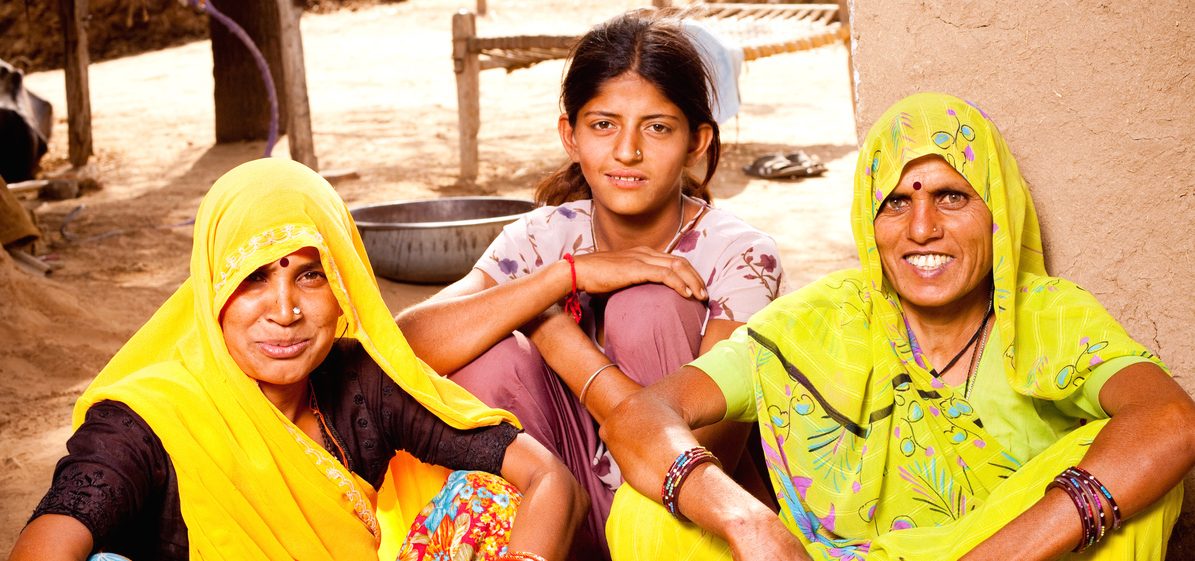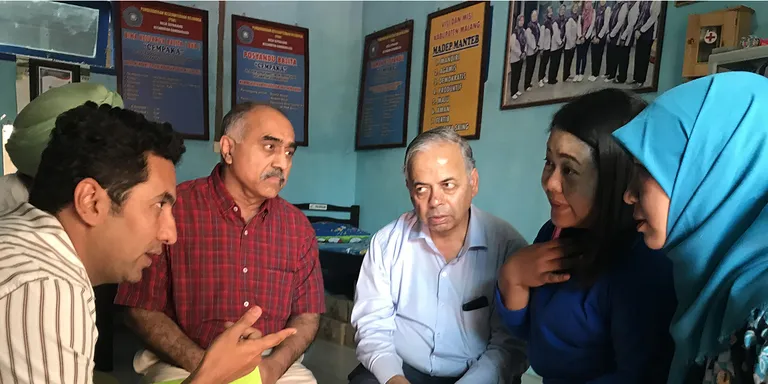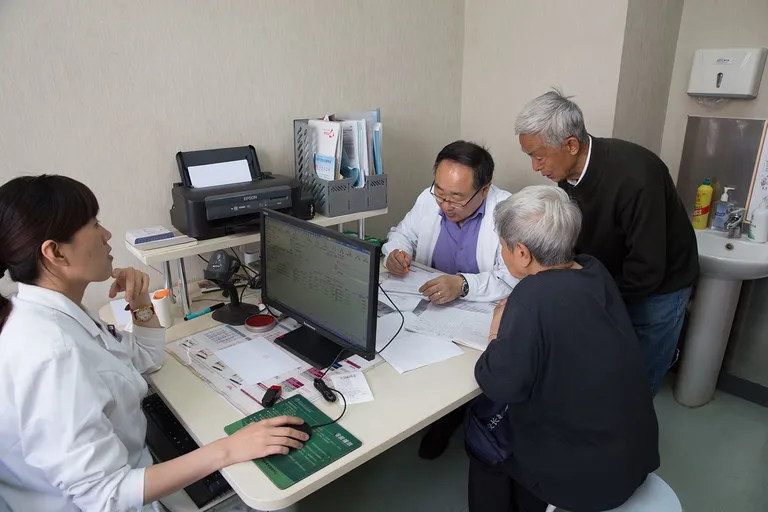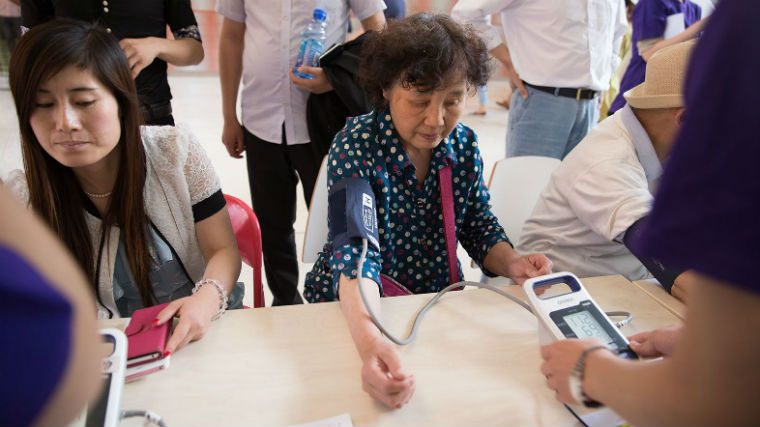“Pregnancy gives us a window into a woman’s future health,” says Dr Amanda Henry, a researcher at The George Institute for Global Health and obstetrician at St. George’s Hospital in Sydney. Dr Henry explains that in some women, physiological changes that occur during pregnancy result in non-communicable diseases (NCDs) such as gestational diabetes, hypertensive disorders, and mental health conditions.
While these conditions often resolve shortly after birth, they signal significantly increased risk for chronic disease later in life. Women with gestational diabetes, for example, have a seven times higher risk of going on to develop type II diabetes. Hypertensive disorders in pregnancy, such as preeclampsia, double or triple the risk of cardiovascular disease and death.
Furthermore, these chronic conditions often take hold while women are still relatively young. According to Dr Henry,
“The risks start to go up within 5 to 10 years of affected pregnancies and continue […]. This is not a difference between having a heart attack at 82 versus 83 [years]. We’re talking about women being early or pre-menopausal when they are seeing these increased risks.”
Notably, babies born to mothers who experience NCDs during pregnancy also have an increased life-time risk of developing chronic conditions.
In May 2019, the virtual Community on Women and NCDs - facilitated by The George Institute on behalf of the World Health Organization (WHO) - hosted a webinar, convening a number of experts to discuss how rolling out NCD services in maternal care as part of Universal Health Coverage (UHC) can help improve the health of mothers and babies alike.
Moderated by Dr Mychelle Farmer (Advancing Synergies, USA), the webinar provided a platform for Dr Henry as well as for Dr Rilwan Adan (Lions Hospital and Baobab Circle, Kenya), Dr Wagida Anwar (Ain Shams University, Egypt), and Dr Natalia Largaespada-Beers (Ministry of Health, Belize) to recommend cost-effective strategies for NCD prevention and management just before, during, and after pregnancy in low-income settings.
Three major themes emerged from the webinar and the resulting discussion:
1) The pre-conception period, defined as the period when a couple is actively trying to conceive, is the ideal moment to identify risk factors for NCDs. UHC must encourage health-seeking behavior and provide affordable coverage to women during this critical period.
Research demonstrates that parental health behaviors during the period just ahead of conception can have a long-term impact on the child’s cardiovascular, metabolic, immune and neurological health. Maternal undernutrition, over-nutrition and obesity can all impact both a mother and her baby’s risk of developing NCDs. Furthermore, there is evidence that interventions promoting behavioral changes that minimize these risks are more effective during this period than either before or during pregnancy.
Admittedly, intervention during the pre-conception period is not always feasible, as many pregnancies happen unplanned. Nevertheless, UHC offers an opportunity to expand access to preventive and promotional health services during this period and maximize opportunities to intervene.
2) The infrastructure for providing care for women during pregnancy already exists, and we can learn from past work integrating HIV care with antenatal services. UHC must include services for the screening and management of NCDs during pregnancy.
According to Dr Adan,
“When they find out they’re pregnant, women will walk [hundreds of] kilometers just to talk to a health care professional. So this is our opportunity to actually promote health in terms of NCD risk factors.”
Research supports Dr Adan’s account; globally, 65% of women receive at least four antenatal health checks, and 86% of women access antenatal care with a skilled health provider at least once (UNICEF 2019).
Dr Adan also notes that in Kenya, HIV screening and management was successfully integrated into maternal health services at each level of the health system. Such integration can be used as a model for the inclusion of mental health, diabetes, and hypertension screening during antenatal checks.
3) NCDs identified during pregnancy signal that a woman will need continuous follow-up postpartum. UHC must enable women who experience NCDs during pregnancy to access enhanced services for chronic disease prevention, detection, and management in the years following birth.
According to Dr Largaespada-Beer, Belize is working towards continuity of care by improving coordination between primary care providers and obstetricians, especially in cases of high-risk pregnancy. She states,
“[In Belize], when a high-risk pregnancy is diagnosed, they are referred to the obstetrician. However, we have found that the co-management with the [primary care provider] is not at the desired level. Hence, we are strengthening the simultaneous referral to the [obstetrician/gynecologist] and to the [primary care provider] based on the diagnosis or the risk factors we have identified in the pregnant woman.”
Strengthening these referral pathways can help improve continuity of NCD care after the mother has given birth. Technology can be a powerful tool for self-management post-pregnancy, especially for women in rural areas. “Mobile penetration is over 80% in Kenya,” Dr Adan explains. “Specialists are concentrated in big cities, and women travel 300-400 km to my diabetes clinic. Telemedicine can help make [access easier].”
Similarly, Dr Anwar describes the success in Egypt of mDiabetes, a mobile application that clinicians use to disseminate messages to patients and their families about how to better self-manage their diabetes.
However, simply creating an app is not enough, cautions Dr Henry, who developed the Blood Pressure Postpartum app to promote lifestyle and behavioral change in women following hypertensive pregnancies.
“Women are not […] interested in [just any] app. They want something more interactive like hooking into an online support group, being able to contact their provider. Appropriate community and stakeholder engagement is needed to make lasting change.”
The integration of NCD care into pre-conception and maternal health services represents one of the most cost-effective ways of reducing morbidity and mortality in women globally. For countries looking to make good on the commitments given at the High-Level Meeting on UHC in September 2019, taking advantage of the window of opportunity pregnancy provides is an obvious place to start.
The George Institute for Global Health facilitates the Community on Women and NCDs, which is hosted by WHO’s Global Coordination Mechanism on NCDs. The webinar ‘Integrating NCD care with pre-conception and maternal health services’ was held as a satellite event to Women Deliver 2019. You can watch it in full here.




















